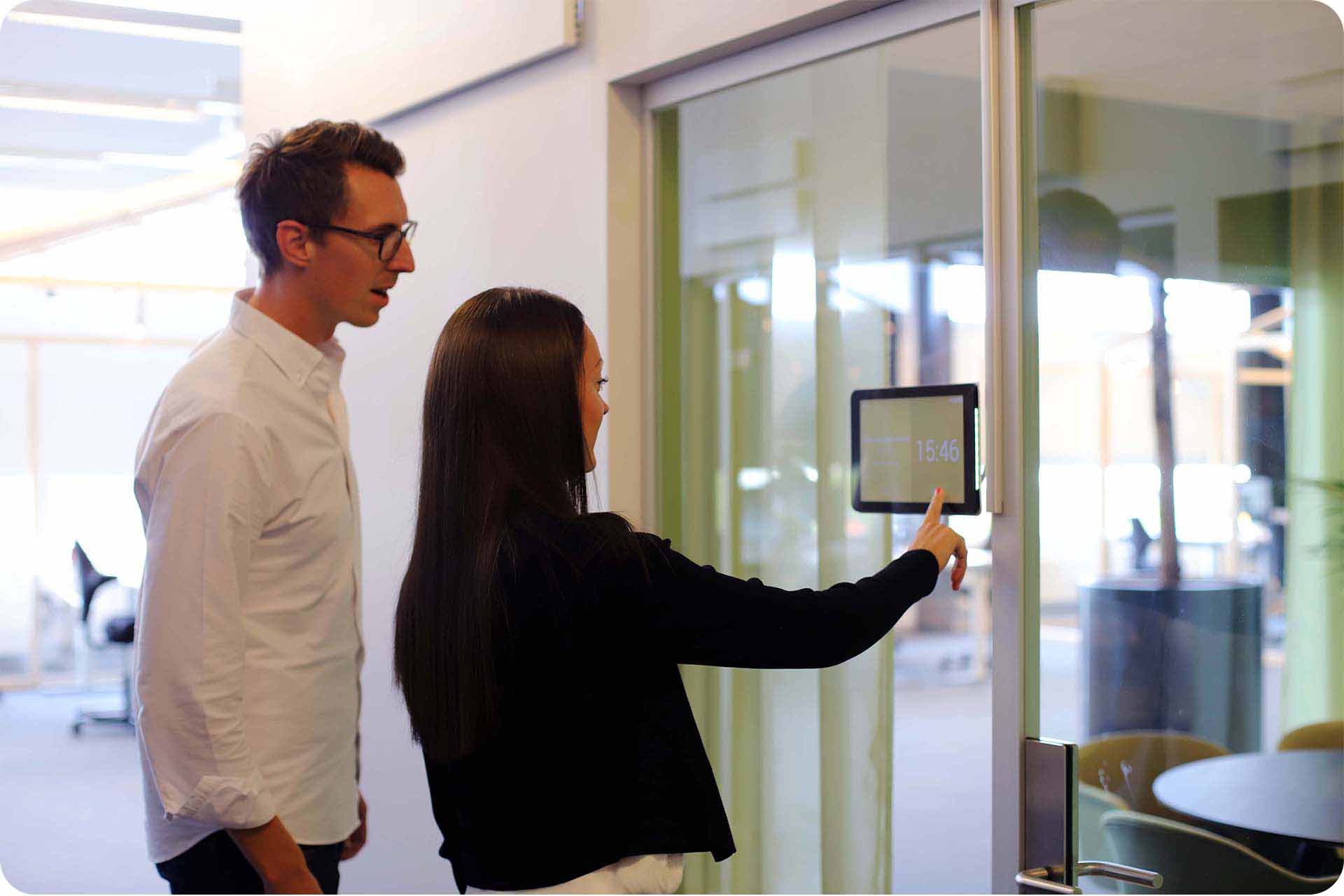Room Reservation Technology: 7 key industries that would benefit
- Written by | Editorial Team
For all the hours people spend working, the actual statistics show that we are getting less productive and not more. A surefire way to free up valuable time for the world’s workers is to streamline the process of reserving meeting venues. Generally, organizations of all sizes can benefit from an asset management system that increases operational efficiencies, like that obtained from a meeting room reservation system.
Here in this article, we highlight a few select industries that would particularly benefit from the deployment of such innovative technology.
SWhy? It’s simple: with fewer companies leasing entire offices, renting office space on an ala-carte and as-needed basis becomes a very attractive proposition. And that’s perfectly understandable, as companies look for ways to decrease overhead costs, after two years of pandemic-related losses.
That’s why despite the sector’s hiccups, experts are bullish about its future. Research And Markets, a research firm, even predicts that the industry will grow by over $13 billion between 2021 to 2025, representing a compounded annual growth rate of 11%.
Business process outsourcing (BPO) companies
The fast growing BPO sector in America has become a $68 billion industry, largely thanks to the cost savings it provides. Generally, most BPO companies deal with muti-national clients. So, coordinating meetings rooms — especially considering round-the-clock shifts in BPOs — can be quite challenging! However, a good meeting room management system, can help streamline this arduous process. Aligning meeting room resources and attendees across the globe.

Real-time data sharing
American workers attend a lot of meetings — eleven million of them each day, to be more precise. If you’re a receptionist in a large company who has to take meeting room reservations manually, you’ve truly got your job cut out for you. Unfortunately, the deluge of requests might mean that you can’t update venue statuses in real-time — a problem that could lead to double-booking. However, when a centralized meeting room management system is used, all reservations are recorded instantaneously in a central database. This means that everyone — whether they’re using a PC, tablet, or smartphone — will see which venues are available in real-time and which are not. By removing potential human errors through transparent information sharing, double-booked room conflicts will be a thing of the past.
Flexibility
In an era where literally everyone owns a smartphone, you may be thinking that people will easily warm up to a digital meeting room booker. The truth of the matter, however, is that there will always be workers who may find such solutions intimidating. Fortunately, the best technology options can easily integrate with legacy systems, making the transition and implementation less painful. For example, if a person prefers using Outlook to send meeting invitations, they can use that platform to book the meeting room venue as well. This level of flexibility greatly enhances user adoption and system usage.
Wayfinding
Bigger companies often have sprawling workplaces, sometimes even spanning multiple floors in the same building. Since there are meeting rooms scattered throughout the premises, finding the right one can be a little challenging. This is especially true for new hires or visitors to your company. The solution? Pick a meeting room management system that shows where the meeting venue is actually physically located through a visual map of the office.
Users can access this map through their smartphone app, or they can refer to a large TV display in the lobby that shows their booked room. Having a robust wayfinding feature ensures that meetings always start on time, in the right place, and with the right people.
Automated communication
There’s nothing worse than inviting a colleague to a meeting only to have them not show up. In many cases, this is because they weren’t looped in properly about the meeting or venue. The good news is that a meeting room manager will automatically notify a person if they’ve been added as an attendee. This can be done in a variety of ways, such as through email or through an in-app notification (if they have the room booking app on their phone). By making sure that people are aware that their attendance is needed, they are less likely to not miss crucial meetings.
Choosing the best solution
There are plenty of room reservation systems on the market, so how do you know which one to get? As with most products, it all comes down to features.
Ideally, the one you choose should be a fully integrated system. Meetio, for instance, is a software and hardware suite. It has an app that lets people book a meeting room anytime and anywhere. Reservations are then automatically displayed either on a tablet outside a venue or even a flatscreen TV, notifying others where and when the room is booked.
If you’d like to know more about Meetio and its features, feel free to request a free demo here.




